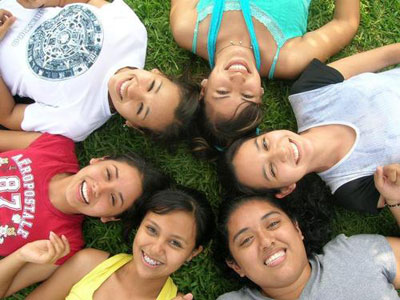All Nonfiction
- Bullying
- Books
- Academic
- Author Interviews
- Celebrity interviews
- College Articles
- College Essays
- Educator of the Year
- Heroes
- Interviews
- Memoir
- Personal Experience
- Sports
- Travel & Culture
All Opinions
- Bullying
- Current Events / Politics
- Discrimination
- Drugs / Alcohol / Smoking
- Entertainment / Celebrities
- Environment
- Love / Relationships
- Movies / Music / TV
- Pop Culture / Trends
- School / College
- Social Issues / Civics
- Spirituality / Religion
- Sports / Hobbies
All Hot Topics
- Bullying
- Community Service
- Environment
- Health
- Letters to the Editor
- Pride & Prejudice
- What Matters
- Back
Summer Guide
- Program Links
- Program Reviews
- Back
College Guide
- College Links
- College Reviews
- College Essays
- College Articles
- Back
Education, Our Basic Right
You may not dance or sing. You may not leave the house except under certain strict conditions. You may not read or write. You may not go to school.
These are the strictures the Taliban seeks to impose upon women and girls in the places to it infests. And when Malala spoke against those strictures, when she gave interviews and wrote a blog announcing her right to learn and to be, she made herself a target of those men. And one of them boarded her school bus with a gun and asked, “Who is Malala?” None of the girls spoke, but a few glanced toward Malala and the gunman had his answer. He raised his pistol, and fired three shots. One bullet went through a girl’s hand. Another ended up in a girl’s arm. And one went through Malala’s left eye socket.
“Why?” You might ask. Yeah, why? Why should girls be treated such unfair?
Boys and girls are both human beings, they should also have the same right.
According to a research, girls are more than 70 percent of the 125 million children who don't have a school to attend.
Malala pointed to the plight of as many as 57 million children around the world who are denied opportunities to go to school. “Those children, do not want iPhone, a PlayStation or chocolate. They just want a book and a pen.”
Ehsanullah Ehsan, a Taliban spokesman, confirmed that Malala had been the target, calling her crusade for education rights an “obscenity.” “She has become a symbol of Western Culture in the area; she was openly propagating it,” Mr. Ehsan also added that if Malala survived, the militants would certainly try to kill her again. “Let this be a lesson.”
Malala Yousafzai’s voice could be deemed a threat to the Taliban, that they could see a schoolgirl’s death as desirable and justifiable, was seen as evidence of both the militants’ brutality and her courage.
According to research, 42% of girls in the world are not enrolled in a school. Almost half of girls do not have school to go.
While you are complaining why you didn’t have an iPhone, why you had to go to school, have you ever consider that there are so many children in the world have no food to eat, no clean water to drink, no school to go, and starving for education?
This many girls do not have a school to attend, which caused two-thirds of the world’s 880 million illiterate adults are women. Is this fair?
Susan B. Anthony (1820-1906), a feminist who played a pivotal role in the 19th century women's rights movement to introduce women's suffrage into the United States.
Elizabeth Blackwell (1821-1910), the first woman to receive the medical degree in the United States.
Dorothy Hodgkin (1910-1994), developed the science of protein crystallography, and also awarded the Nobel prize in chemistry.
Malala Yousafzai (1997-Present), a Pakistani school student and an activist for education and women right.
These educated women made our world big differences, they made our world a better place. Educating girls can improve literacy and numeracy skills leading to greater economic opportunities.
Those strictures the Taliban seeks to impose upon women in the places to it infests, forbidden girl’s education, and also other basic rights.
“Fighting the Taliban is important, but through peace, dialogue and education,” said Malala. But the Taliban often prefer violence to do the talking. “They thought that the bullets would silence us, but they failed," she said. "And then, out of that silence, came thousands of voices.”
Why should girls brace the unfair treatment?
Malala: “I think of it often and imagine the scene clearly. Even if they come to kill me, I will tell them what they are trying to do is wrong, that education is our basic right.”

Similar Articles
JOIN THE DISCUSSION
This article has 0 comments.
